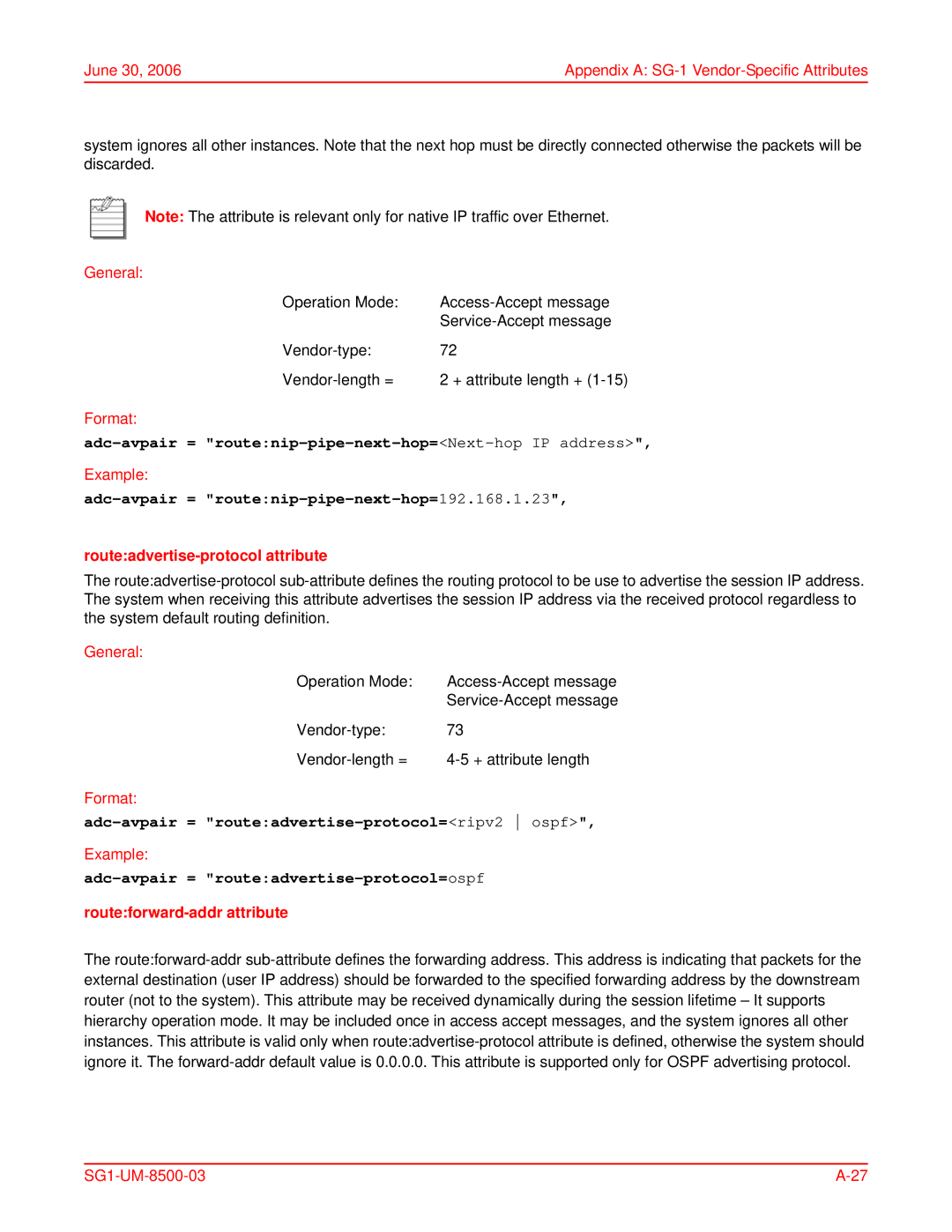
June 30, 2006 | Appendix A: |
system ignores all other instances. Note that the next hop must be directly connected otherwise the packets will be discarded.
Note: The attribute is relevant only for native IP traffic over Ethernet.
General:
Operation Mode: | |
| |
72 | |
2 + attribute length + |
Format:
adc-avpair = "route:nip-pipe-next-hop=<Next-hop IP address>",
Example:
adc-avpair = "route:nip-pipe-next-hop=192.168.1.23",
route:advertise-protocol attribute
The
General:
Operation Mode: | |
| |
73 | |
Format:
adc-avpair = "route:advertise-protocol=<ripv2 ospf>",
Example:
adc-avpair = "route:advertise-protocol=ospf
route:forward-addr attribute
The
|
